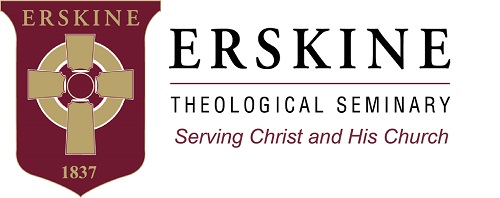Spring 2026 Courses
Master's Level Courses
BI 502: Principles of Exegesis
Day: 4 Saturdays – 1/31, 2/28, 3/28, 4/25
Time: 9:00 a.m. – 5:00 p.m.
Format: In-person and live video conference for distance students
Course Description:
This course introduces the student to the principles and practice of exegesis of the Old and New Testaments and surveys the history of the texts and translations of the Bible, as well as the ways the Old and New Testaments have been interpreted by the Church. Passages for exegetical practice are selected from both Testaments. Required during the first year of study for M.Div. and MATS students. This course is a prerequisite for all exegesis-credit courses. Three hours.

Professor: Dr. Max Rogland
Research Professor of Old Testament
Email: rogland@erskine.edu
NT 785: The New Testament's Use of the Old Testament
Day: 4 Mondays – 1/26, 2/23, 3/23, 4/20
Time: 9:00 a.m. – 5:00 p.m.
Format: In-person and live video conference for distance students
Course Description:
This course introduces the student to the use of the Old Testament by New Testament authors. A select Old Testament book will be used to illustrate the variety of ways New Testament writers quoted or alluded to other passages of Scripture. Students will learn how to apply the interpretive methods of the biblical writers for their own study of the Bible today. Prerequisite: Students must have successfully completed BI 502 Principles of Exegesis prior to taking this class. Exegesis/Elective. Three hours.

Professor: Dr. Max Rogland
Research Professor of Old Testament
Email: rogland@erskine.edu
ST 715: The Westminster Standards
Day: 4 Saturdays – 1/17, 2/7, 3/7, 4/11
Time: 9:00 a.m. – 5:00 p.m.
Format: In-person and live video conference for distance students
Course Description:
This course considers the origin and convening of the Westminster Assembly. Students analyze the theology of the Assembly through a study of the Westminster Standards. Recommended for ARP, PCA, and EPC MDiv students; open to others. Three hours.

Professor: Dr. Mark Ross
The First Presbyterian Church – John R. de Witt chair of Theology | Associate Dean for Erskine Columbia
Email: ross@erskine.edu
Phone: 803-392-3748
ST 602: Systematic Theology II
Day: Mondays
Time: 6:00 – 9:00 p.m.
Format: In-person and live video conference for distance students
Course Description:
This course continues a systematic presentation of the Christian faith. Using biblical constructs, historical developments, and confessional statements, students explore the doctrine of God, the doctrine of humanity, and the doctrine of Christ. Prerequisites: Students should complete ST 601 Systematic Theology I prior to taking this course. Required for MDiv and MATS students. Three hours.

Professor: Dr. Mark Ross
The First Presbyterian Church – John R. de Witt chair of Theology | Associate Dean for Erskine Columbia
Email: ross@erskine.edu
Phone: 803-392-3748
Th.M. Courses
BI 801: Seminar in Biblical Studies: Intertextuality & Interpretation
Day: 4 Mondays- 1/26, 2/23, 3/23, 4/20
Time: 9:00 a.m. – 5:00 p.m.
Format: In-person and live video conference for distance students
Course Description:
The focus of this seminar is the phenomenon of inner-biblical allusion, often referred to as biblical intertextuality. Students will study both Old and New Testament authors’ use of Old Testament texts and will consider the implications for biblical exegesis and contemporary hermeneutics. Different types of allusion as well as the interpretive methods common within Second Temple Judaism and the Greco-Roman world will be examined. The book of Esther will form a frequent starting point for discussion of inner-biblical allusion within the biblical canon. The seminar format includes lectures, student presentations, classroom discussion, and exegesis of selected texts.

Professor: Dr. Max Rogland
Research Professor of Old Testament
Email: rogland@erskine.edu
HT 801: Seminar in Historical Studies: The Westminster Standards
Day: 4 Saturdays: 1/17, 2/7, 3/7, 4/11
Time: 9:00 a.m. – 5:00 p.m.
Format: In-person and live video conference for distance students
Course Description:
In this course students will investigate the historical background and context to this influential assembly, its doctrinal achievements, and its views on church government and worship. This will help students to understand better the doctrinal history of the Protestant churches from the seventeenth century to the present, and especially the churches in America. It will assist them in formulating their own views on matters of doctrine, worship, and church government. Depending on the students’ projected thesis topic, they will be able to choose a research topic in Bible, church history, historical or systematic theology.

Professor: Dr. Mark Ross
The First Presbyterian Church – John R. de Witt chair of Theology | Associate Dean for Erskine Columbia
Email: ross@erskine.edu
Phone: 803-392-3748
D.Min. Courses
DC 920: The Westminster Assembly: Then and Now
Day: 4 Saturdays: 1/17, 2/7, 3/7, 4/11
Time: 9:00 a.m. – 5:00 p.m.
Format: In-person and live video conference for distance students
Course Description:
This course examines the Westminster Assembly in its historical context, looking at both its accomplishments and its failures in the light of its stated goals in the Solemn League and Covenant. The influence of this Assembly in the history of the Church will be traced and the lessons and applications for today’s Church will be explored. Elective. Three hours.

Professor: Dr. Mark Ross
The First Presbyterian Church – John R. de Witt chair of Theology | Associate Dean for Erskine Columbia
Email: ross@erskine.edu
Phone: 803-392-3748
DN 949: Scripture Interpreting Scripture
Day: 4 Mondays- 1/26, 2/23, 3/23, 4/20
Time: 9:00 a.m. – 5:00 p.m.
Format: In-person and live video conference for distance students
Course Description:
This course focuses on how biblical authors appropriated the Old Testament in their writings, whether by direct quotation or more indirectly by allusion. A select Old Testament book will be used to demonstrate the biblical authors’ interpretative methods. This course considers the relevance of how the biblical authors used Scripture for interpreting, applying, and preaching the Bible today. Elective (Norms). Three hours.

Professor: Dr. Max Rogland
Research Professor of Old Testament
Email: rogland@erskine.edu
